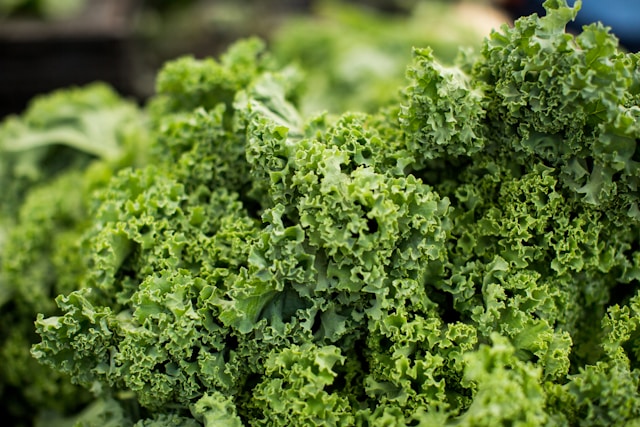The Significance of Protein Intake Post-Workout: Maximizing Your Gains
November 30, 2016
Studies have proven that exercise and protein are very much important for health. Earth’s Wisdom always gives importance to exercise because it’s the exercise which keeps all your muscles, tendons, ligaments and organs active, ensures proper blood supply and thus nutrition to every cell, burns unnecessary fat and cholesterol, keeps you mentally sound and comfortable, and overall physically and mentally problem-free. However, your food is also equally important as exercise. This is because during exercise your body undergoes wear and tear which is repaired with right kind of food and right amount of sleep. And the most important among the food is protein!
Proteins – The Building Blocks of Our Body
Do you know that the outer layer of our cells is made of a molecule called lipoprotein which is a combination of lipid and protein? This means that the basic unit of our body (cell) depends on proteins for its very existence. Imagine how harmful would it be if your diet lacks in proteins! Your cells have a limited life. Every cell does its job and then dies, and is replaced by a new cell and the cycle continues. Every day millions of our cells die and are replaced by new cells, even though we don’t exercise. When we exercise this amount is even higher and process is even faster. To build up healthy new cells, proteins are a basic requirement. Without appropriate amount of protein intake, the new cells will be weak and their weakness will be reflected in your day-to-day life. You will feel tired, unmotivated, nervous and overall unhappy about your life.
Importance of Timing of Protein Intake
It’s good if you take proteins any time of the day; however, if you take them within two hours of your intense workout, they are the most useful to repair the wear and tear of your muscles that occurs after workout. Also, new muscle fibers are synthesized during workout. Protein intake after workout also helps in this new muscle fiber synthesis. All in all, a major chunk of proteins at your regular mealtimes and a small amount of them (5-10gm) before and slightly more amount (15-20gm) after workout works fantastic to repair muscle wear and tear, and build up new muscle fibers.
Needs of Proteins
If you are living a sedentary life (which is unhealthy, leave it), you need a little amount of protein. However, if you exercise regularly, you need a large amount of protein. The amount depends on the kind of exercise and its intensity. E.g. distance runners will need more dietary protein than that needed by competitive weightlifters.
If your lifestyle is relatively inactive, your daily requirement of proteins will be met by consuming 0.8gm-1.0 gm of protein per 1 lb body weight. But if you do high intensity resistance workout, you will need up to 1.5-2.0gm high quality protein per 1 lb body weight. Again timing is important so as to make your workout routine effective to maximum extent.
Types of Protein
Protein of high quality offers all the essential amino acids that our body cannot synthesize (produce by itself). You can consume proteins in the form of foods and if that’s not possible, you can have protein supplements.
Food-based proteins are of two types: Vegetable-based and Animal-based.
Vegetable-based Protein:
Grams
Peanuts
Beans
Peas
Nuts
Sprouts
Mushroom
Animal-based Protein:
Meat
Eggs
Fish
Seafood
Milk
Other dairy products
Milk products are especially better to take after workout because they consist of a high amount of branched-chain amino acids that are especially effective in promoting the buildup of new muscles and also help reduce fatigue and stimulate muscle fiber recovery.
While protein is an utmost important food ingredient that you should include in your diet if you have an active lifestyle and/or you do intense workout, other nutrients are also important. Better is not to underestimate any of them and take a balanced meal on right timings of the day.
Conclusion
Protein is a crucial component in post-exercise recovery and overall health. By incorporating protein into your diet after exercise, you can promote muscle repair and growth, improve your metabolism, and optimize your fitness goals. From animal-based to plant-based sources, there are many options to choose from. So, whether you're a fitness enthusiast or just starting your journey, make sure to prioritize protein in your post-workout routine to maximize your results and improve your overall well-being.
In addition to its role in muscle repair and growth, protein also provides essential amino acids that the body needs to function properly. These amino acids help build and repair tissues, including muscles, bones, skin, and organs. Protein also supports a healthy immune system, hormone production, and enzyme function. Therefore, incorporating protein into your diet after exercise is not only important for optimal recovery, but also for overall health.
There are many options when it comes to protein sources, including animal-based and plant-based options. Animal-based sources such as chicken, beef, and fish are great sources of high-quality protein, while plant-based sources like beans, lentils, and tofu can also provide a significant amount of protein. Choosing a variety of protein sources can help ensure that you're getting all the essential amino acids your body needs.
Overall, understanding the importance of protein after exercise can help you optimize your recovery and reach your fitness goals. So, whether you prefer animal-based or plant-based protein sources, make sure to incorporate protein into your post-workout routine to promote muscle repair and growth, improve your overall health, and achieve your fitness goals.
Leave a comment
Comments will be approved before showing up.
Also in Wisdom News

The Importance of Vitamin K2: Unlocking its Role in Health and Wellness
September 22, 2024

The Importance of Omega-3 Fatty Acids: A Comprehensive Review of Their Effects on the Body
August 02, 2024

The Benefits of Mindfulness Meditation for Mental Health
July 12, 2024
Disclaimer: These statements have not been evaluated by the FDA. These products are not intended to diagnose, treat, cure or prevent any disease.
© 2026 Earth's Wisdom®. All Rights Reserved.




